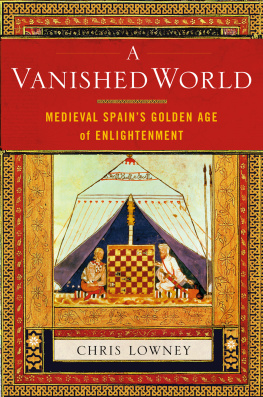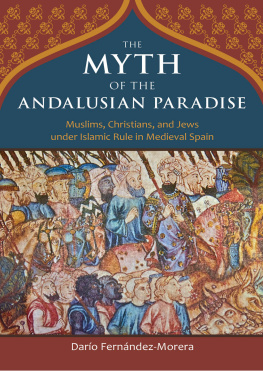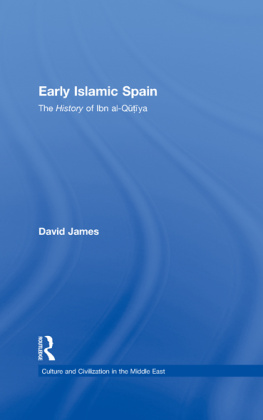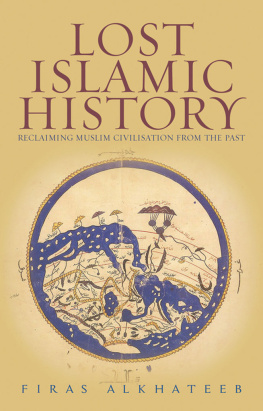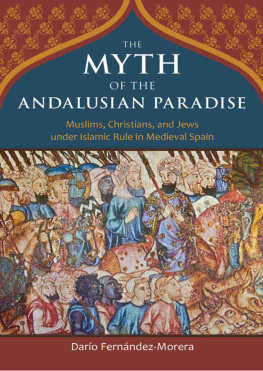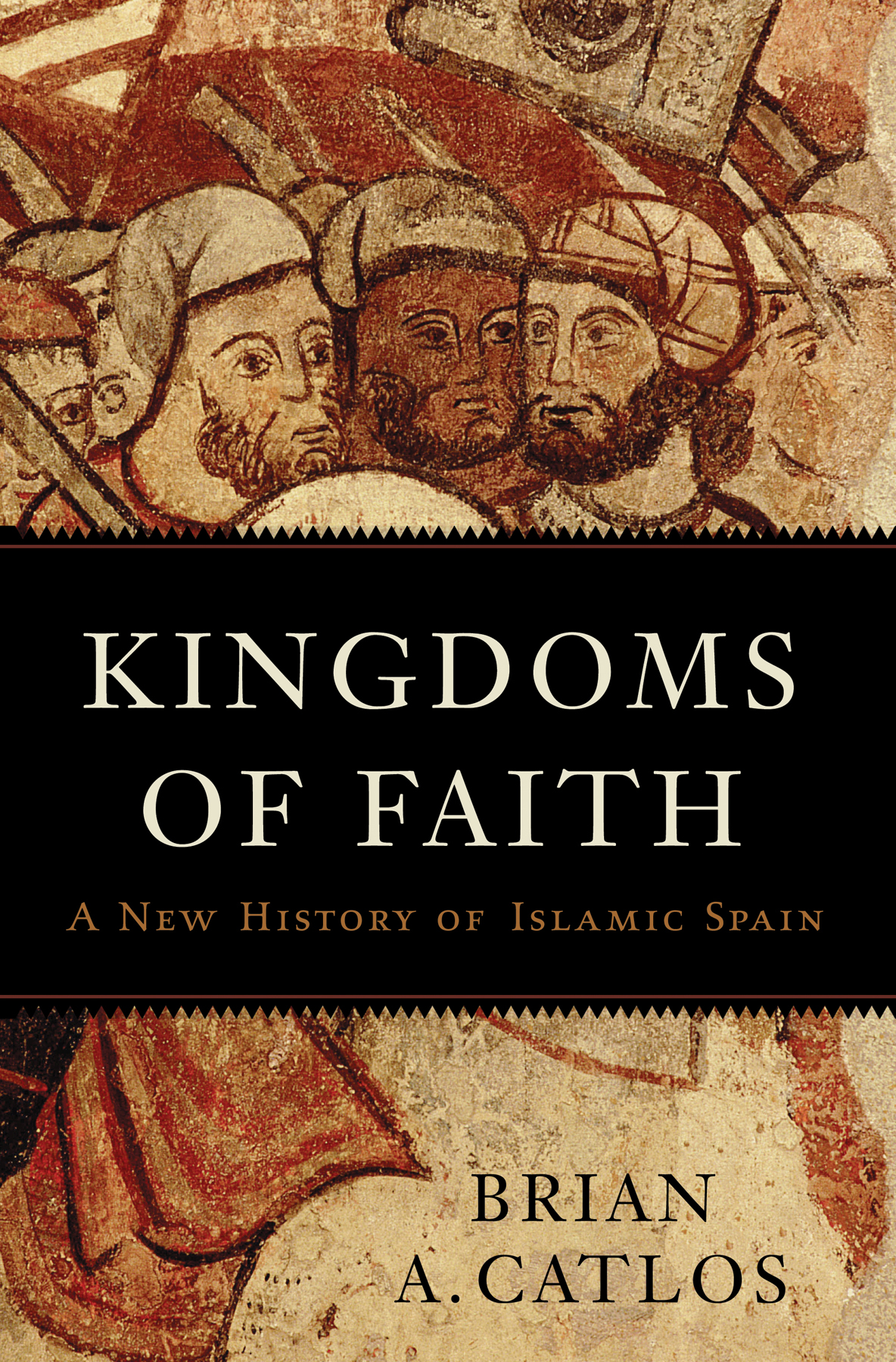Readers will have to contend with many strange and foreign-sounding names in this book. Arabic (and Hebrew) names consist of several elements, normally a first name and a series of patronymics (e.g., ibn for son of or bint for daughter of, in Arabic), as well as titles, honorifics, and other components relating to place of origin or residence, profession, clan, tribe, or accomplishment. A given individual might be referred to by any of these. For example, the caliph Abd al-Rahman III was Abd al-Rahman ibn Muhammad ibn Abd Allah al-Nasir li-Din Allah. He is typically referred to as Abd al-Rahman or al-Nasir (but never Abd or Rahman). The III is a modern addition; rulers were not typically referred to numerically in this era. The patronymic can function like a surname, particularly if it relates to an ancestor regarded as illustrious or the founder of the family. For example, Ali ibn Ahmad ibn Said ibn Hazm is usually referred to as Ibn Hazm. His larger family might be known as the Banu Hazm (the sons, descendants, or clan of Hazm).
Latin Christian names can also be confusing, if only because of the propensity for certain ones to become popular at certain times, making for proliferations of Alfonsos, Pedros, and Sanchos that can drive even a seasoned medievalist to distraction. To alleviate some of the potential frustration, I have usually used the form of each name that corresponds to the individuals region of origin or identification. Hence, an Alfonso from Castile or Len is Alfonso, from Portugal, Afonso, and from Catalonia, Alfons. The names of the Arista family are given in Basque; as per convention, Castilian versions are used for their successors as rulers of Pamplona and Navarre. Exceptions are made for the names of popes, for individuals who have standard names in English, and for some minor characters. Thus, you will encounter Count Julian, Charlemagne, Pope Innocent III, Thomas Aquinas, and the emperor Charles V.
In order to help keep track of the myriad individuals, groups, and non-English terms, a table of Umayyad caliphs and a table of Nasrid sultans are provided at the end of the book, together with a glossary that lists the main dynasties, clans, and ethnic groups, as well as other foreign vocabulary.
A SIMPLIFIED FORM of Arabic transliteration has been used. Special characters have been avoided, and both hamza and ayn are represented by a single quotation mark. The suffix -un or -in is a frequent plural form, while the suffix -i can turn a noun into an adjective (e.g., the Shia faith versus a Shii imam).
R EGARDING PLACE-NAMES, the general rule I have followed is to refer to places by the name used by their modern inhabitants. So, you will read of Crdoba, Zaragoza (as opposed to Saragossa), and Lleida (as opposed to Lrida). Exceptions are made for some places that have a standard name in English, such as Seville (Sevilla), Fez (Fas), or Mecca (Makka). The Arabic names of places in al-Andalus are provided in parentheses, normally the first time they appear in the text.
A LL DATES IN the text are provided in the calendar of the Common Era (BCE/CE), an adaptation of the Christian Gregorian calendar (BC/AD) that superseded the Julian calendar in 1582. It is based on a solar year of 365.25 days that begins on January 1 and is counted from the notional birth year of Jesus (now reckoned at 4 BCE). In the Visigothic calendar, years were counted from 38 BCE, the beginning of formal Roman dominion over Hispania. Known as the Spanish era, this was phased out between the twelfth and fourteenth centuries in favor of the Julian calendar, which reckoned from the time of Christ (AD or Anno Domini, in the year of Our Lord). In early Catalonia, dates sometimes used the old Roman reckoning of the indiction, or the regnal years, of Holy Roman Emperors. Using the Julian system, the new year was often counted from March 25, the presumed date of Jesuss conception, until January 1 eventually returned as the standard.
The hijri, or Islamic calendar AH, has a year of twelve lunar months counted from July 16, 622 CE, which is the date associated with Muhammads departure for Medina (the hijra


